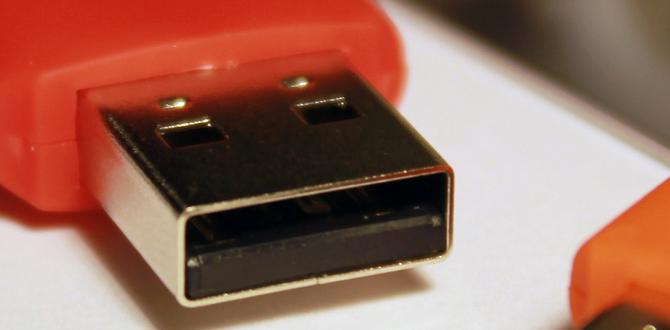Have you ever wondered how your personal information stays safe on your devices? In today’s world, data protection is more important than ever. Every time we share our photos, messages, or bank details, we create a need for stronger security. That’s where data protection device encryption comes in.
Imagine a magical lock that keeps your secrets safe! That’s what encryption does. It turns your data into a code that only you can unlock. Sounds cool, right? With data protection device encryption, you can safeguard your private stuff from hackers and thieves.
In fact, did you know that most smartphones and computers use some form of encryption? This helps keep your information secure when you shop online or send a message. So, understanding how this technology works is crucial for everyone, especially as we rely more on digital tools every day.
Ready to dive deeper? Let’s explore how data protection device encryption works and why it matters to you.
Data Protection Device Encryption
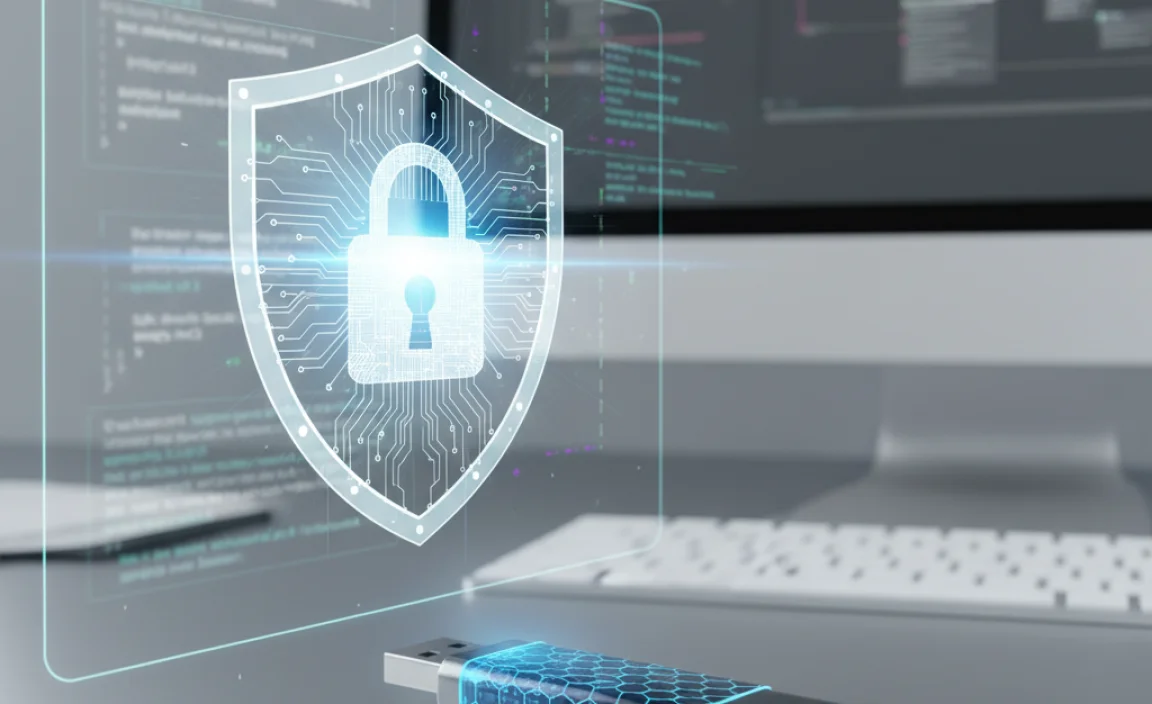
Data protection device encryption keeps your information safe. Imagine your favorite video game saved on a shiny new tablet. What if someone else accessed it without your permission? Encryption helps protect against this. It scrambles data, making it unreadable to unauthorized users. This secure method ensures that only you can see your important files. Did you know that many smartphones use encryption to keep your messages private? It’s essential for privacy in today’s digital world.
What is Device Encryption?
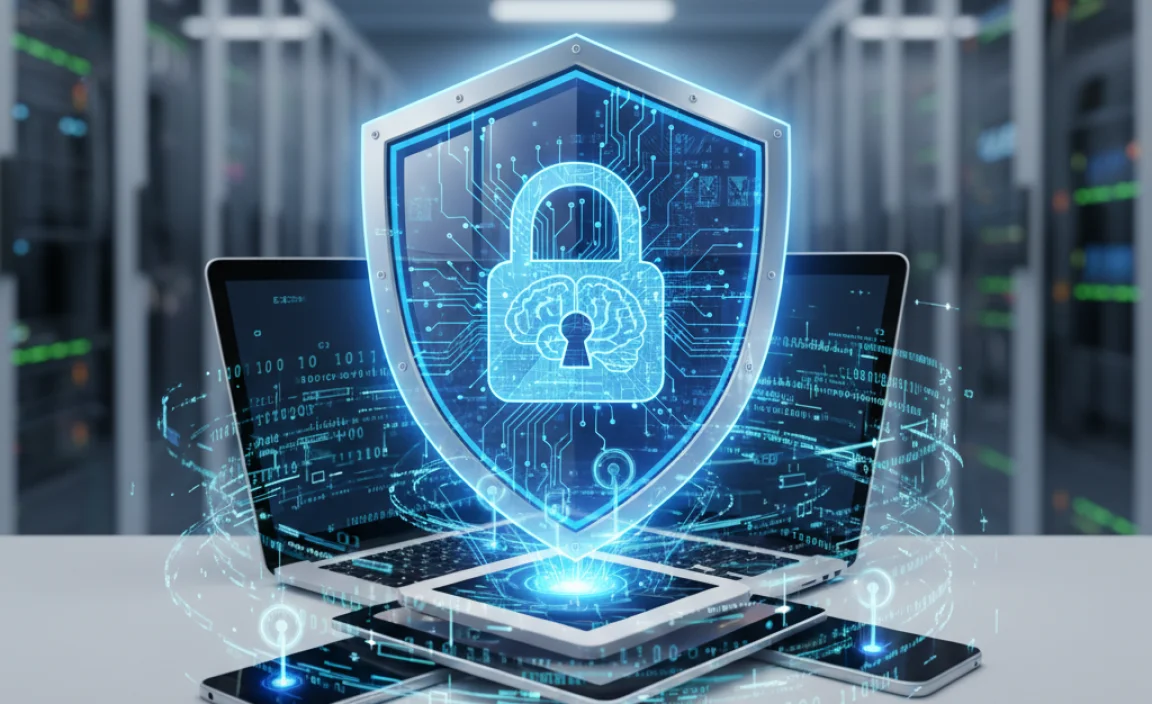
Definition and explanation of device encryption. Difference between full disk encryption and filelevel encryption.
Device encryption means protecting the data on your device by scrambling it. This way, only people with the right key can read it. There are two main types:
- Full Disk Encryption: This protects everything on the device. It locks all data at once.
- File-Level Encryption: This is more selective. It encrypts specific files or folders only.
Both methods keep your information safe but in different ways. Full disk encryption is like locking your front door. File-level encryption is like hiding valuables in a safe.
Why use device encryption?
Device encryption protects sensitive information from unauthorized access. It prevents data theft and keeps your personal files secure.
Importance of Data Protection
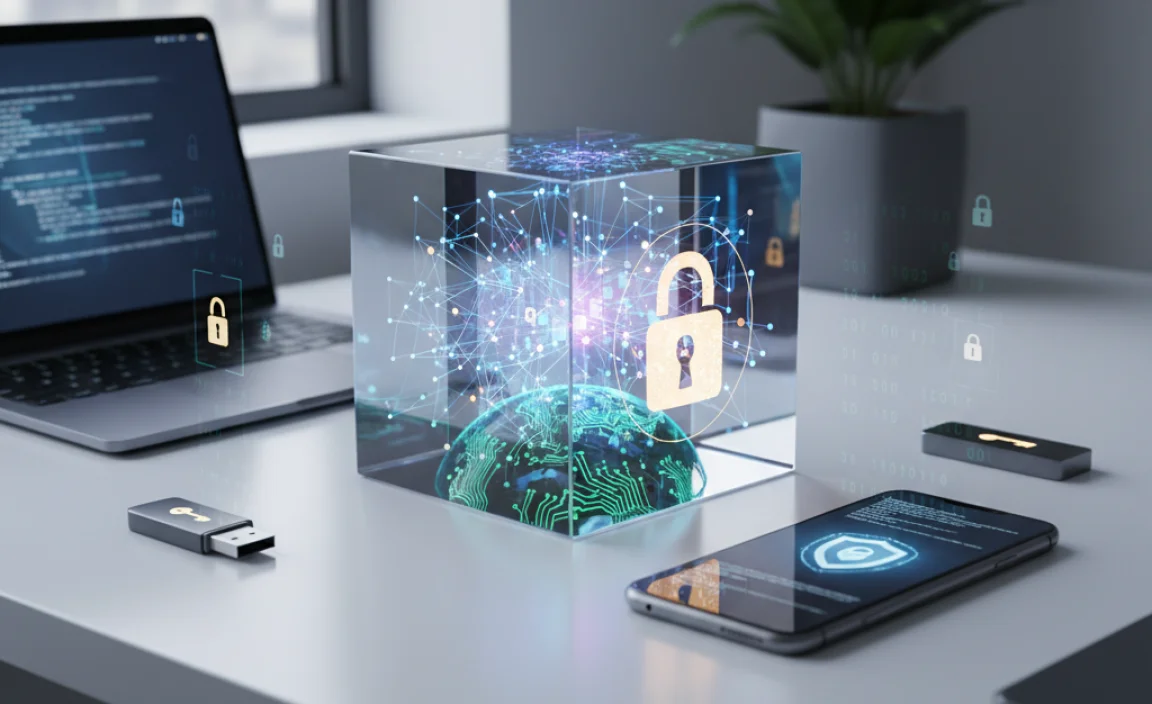
Risks of data breaches and unauthorized access. Legal and regulatory requirements for data protection.
Data protection is very important to keep our information safe. Without it, we risk data breaches and unauthorized access. Imagine your secrets being seen by strangers! This can lead to serious problems. There are also legal rules requiring companies to secure data. Not following these rules can result in big fines. Protecting data isn’t just good practice; it’s necessary.
- Protects against theft of personal information
- Helps organizations avoid legal troubles
- Keeps customer trust intact
Why is data protection important?
Data protection is important because it keeps people’s information safe from bad guys and helps businesses avoid getting into trouble.
Benefits of Using Device Encryption
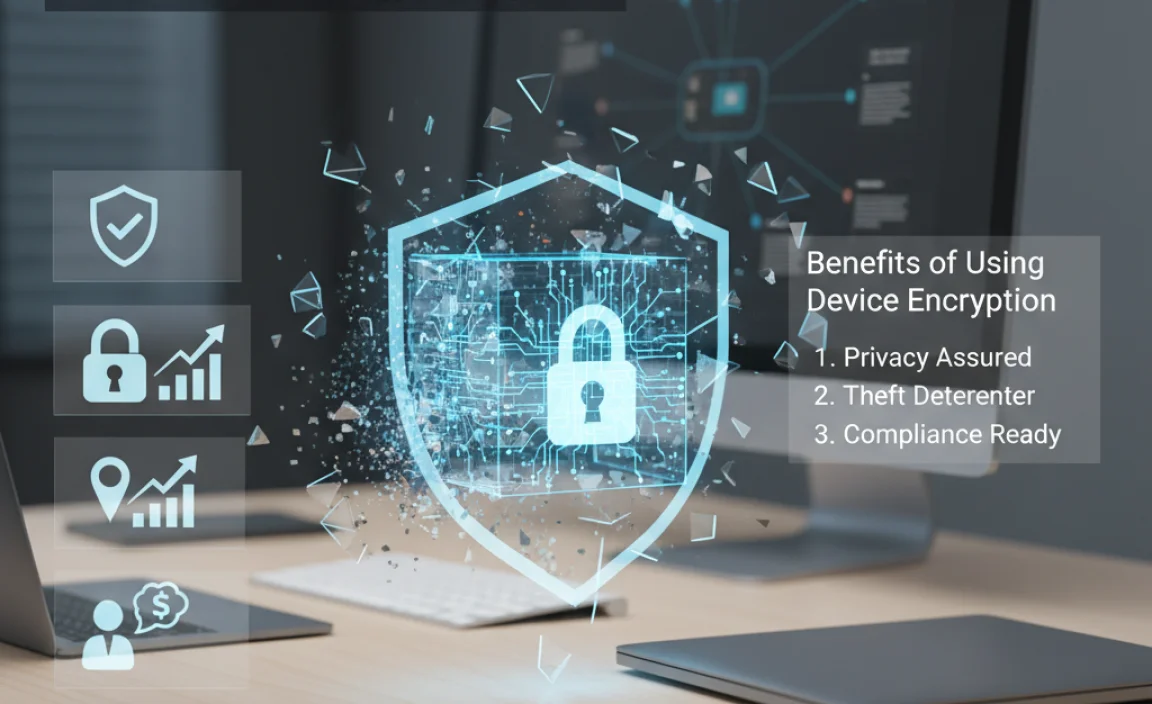
Enhanced security for sensitive data. Protection against data loss in case of theft or loss.
Using device encryption is like locking your treasures in a safe. It helps keep your sensitive data secure from bad people. If someone steals your device or you lose it, encryption protects your information so it can’t be opened easily. Here are some benefits:
- Enhanced security for your important files
- Prevents data loss if your device goes missing
Imagine your favorite storybook being gone forever. Encryption acts like a superhero, saving your secrets well. Every day, we face risks, and having encryption can keep us safer!
What are the benefits of device encryption?
Device encryption enhances security and protects data lost due to theft or loss.
Choosing the Right Encryption Solution
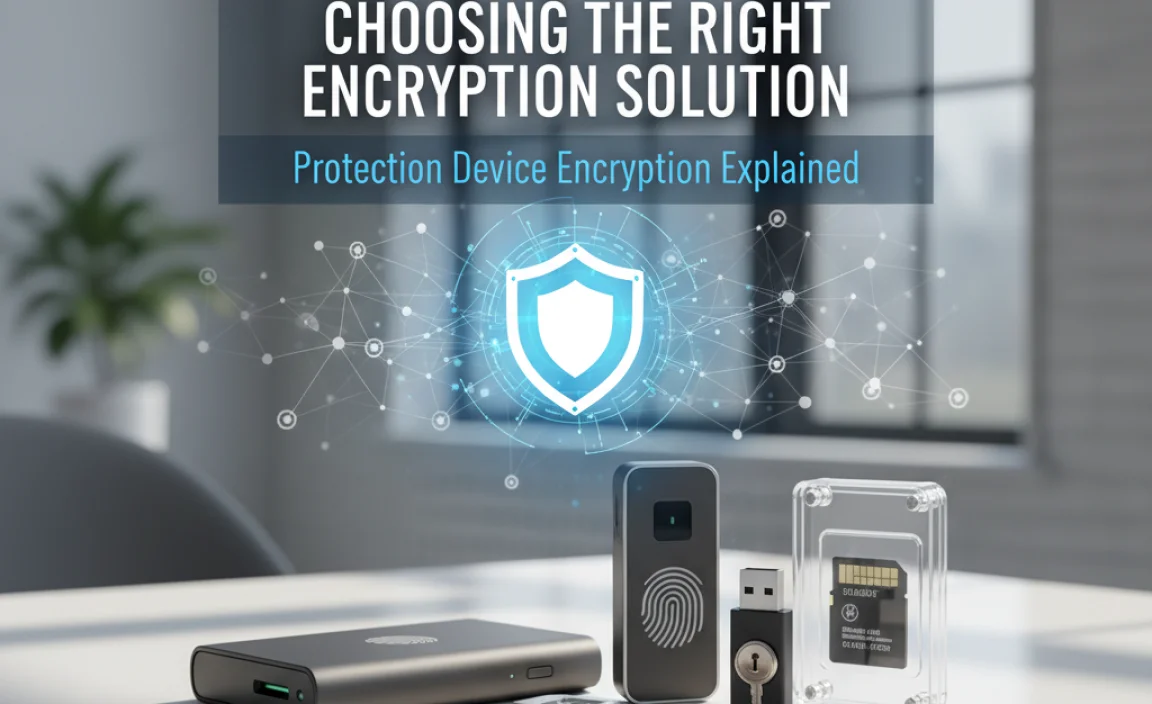
Factors to consider when selecting encryption software. Comparison of popular encryption tools and software.
Selecting the right encryption software is important for keeping your data safe. Start by considering a few key factors. Look at how easy it is to use, the cost, and if it works on different devices. You want software that offers strong security features.
Here’s a quick comparison of popular tools:
- BitLocker: Built into Windows, great for personal use.
- VeraCrypt: Free and open-source, very secure.
- PGP: Professional tool used for emails and files.
Remember, the right choice keeps your information safe from thieves and hackers!
What should I consider when choosing encryption software?
Focus on ease of use, available features, and price.
Key Factors to Look At:
- User-friendliness
- Compatibility with your device
- Cost
- Customer support
Implementing Device Encryption
Stepbystep guide to encrypting devices. Common challenges and how to overcome them.
Encrypting your device is like putting a lock on a treasure chest. It keeps your data safe from sneaky pirates—err, hackers! Start by choosing the right encryption software. Install it, then follow the user-friendly setup steps. You might hit a few bumps along the way, like forgetting your password or running out of space. Don’t panic! Always write down important passwords or check if you have enough storage.
| Common Challenges | How to Overcome |
|---|---|
| Forgetting passwords | Write them down securely. |
| Low storage | Clear some space first! |
| Slow performance | Optimize your device settings. |
With a little patience, you can sail smoothly through the encryption process. Remember, every click helps shield your data from digital pirates looking to steal your treasure!
Maintaining Data Security After Encryption
Best practices for managing encrypted data. Regular updates and audits for encryption standards.
Keeping your data safe after encryption is like guarding a treasure chest. First, always follow best practices for managing your encrypted data. Regularly update your security software and conduct audits. It’s like a check-up for your digital health! Encrypted data needs care, much like a pet fish that requires fresh water. Here’s a quick guide:
| Practice | Why It Matters |
|---|---|
| Regular Updates | Keeps your encryption strong against new threats. |
| Routine Audits | Ensures everything is working as it should. |
| Access Control | Limits who can see your secrets. |
Remember, even the best encryption can be useless if not maintained. So, treat your data like a secret recipe—it deserves the best protection!
The Future of Device Encryption
Emerging trends in encryption technology. Impact of advancements in artificial intelligence and quantum computing on encryption.
The future of encryption looks bright and a bit quirky! With more people worried about their data, new trends are popping up. Artificial intelligence is playing a big role. It helps create smarter encryption methods. On the flip side, quantum computing might shake things up. It’s like having a super-smart robot that can crack codes super fast!
Here’s a fun fact: by 2025, experts predict that 83% of all data will be stored in the cloud! So, keeping that data safe is crucial. Take a look at this table to see some key trends:
| Trend | Description |
|---|---|
| AI in Encryption | AI helps make stronger, smarter encryption. |
| Quantum Challenges | Quantum computers could break old encryption styles. |
| Increased Demand | More users mean more need for secure devices! |
As we move forward, every click, scroll, and tap counts. Keeping our data safe and sound should be as easy as pie—especially blueberry pie! Yum!
Conclusion
In conclusion, data protection device encryption keeps your information safe from prying eyes. It scrambles data, making it unreadable without the right keys. Always use encryption on your devices, such as phones and computers. This step helps protect your personal information. For more safety tips, keep reading and stay informed. Your data deserves strong protection!
FAQs
Sure! Here Are Five Related Questions On The Topic Of Data Protection Device Encryption:
Sure! Here are five important things about device encryption for data protection: 1. **What is device encryption?** Device encryption is a way to lock your data using a special code. This keeps your information safe from anyone who shouldn’t see it. 2. **Why do you need it?** We need encryption to protect our private information, like photos and messages, so no one can steal them. 3. **How does it work?** It scrambles your data, making it unreadable without the right password. This means only you can unlock it. 4. **Who should use it?** Everyone with a device that holds personal information should use encryption. This includes phones, tablets, and laptops. 5. **What happens if my device is lost?** If your device is lost but encrypted, your data stays safe. Only someone with the right password can read it.
Sure! Please provide the question you would like me to answer.
What Are The Primary Benefits Of Using Device Encryption For Data Protection?
Device encryption helps keep your information safe. It changes your files into a secret code. Only you can see them with a special key, like a password. If someone tries to access your device, they can’t read your data. This way, you protect your personal stuff from bad people.
How Does Full Disk Encryption Differ From File-Level Encryption In Terms Of Security?
Full disk encryption protects everything on your computer, like a big lock on a treasure chest. This way, no one can sneak in and see your files unless they have the key. File-level encryption, on the other hand, only locks specific files, like putting a tiny lock on a few important papers. This means some files might still be open for others to see. So, full disk encryption is usually safer because it keeps everything secured at once.
What Are Some Common Encryption Standards And Algorithms Used For Data Protection On Devices?
Some common encryption standards are AES and RSA. AES stands for Advanced Encryption Standard. It helps keep your data safe by scrambling it. RSA is good for sharing secret keys between devices. Both make sure only the right people can see your information.
How Can Organizations Ensure Compliance With Data Protection Regulations When Implementing Encryption?
To make sure we follow data protection rules when using encryption, we can do a few things. First, we should know the rules really well. Then, we need to use strong encryption methods to keep our data safe. Next, we can train our team to understand how to use encryption properly. Finally, we should check our work often to make sure we still follow the rules.
What Steps Should Users Take To Securely Manage Encryption Keys For Their Encrypted Devices?
To keep your encryption keys safe, first, write them down and store them in a secret place. Don’t share your keys with anyone else. Use a strong password to help protect your devices. You should also back up your keys in case you lose them. This way, you can always get back into your encrypted stuff.








